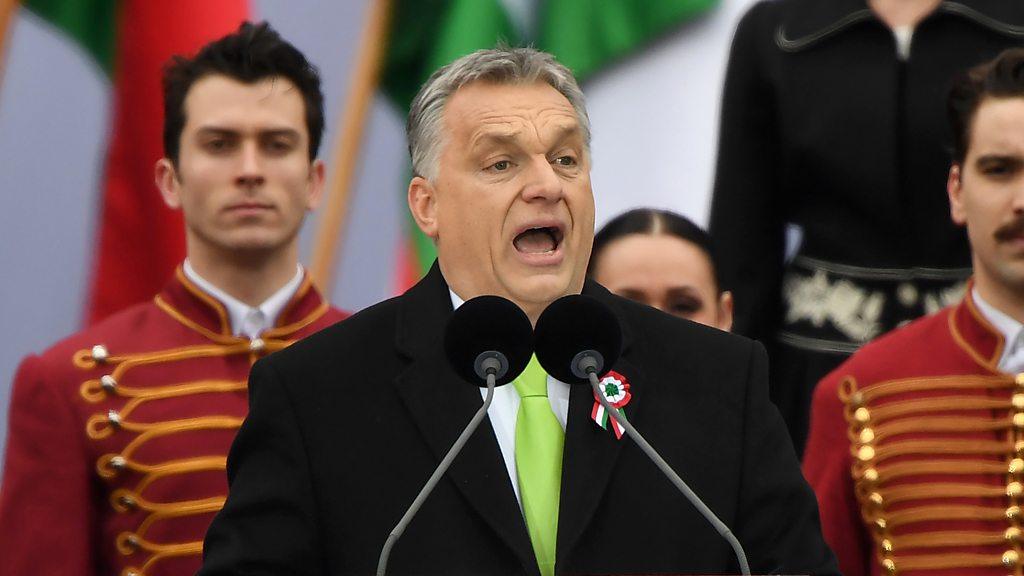Coronavirus: Hungary votes to end Viktor Orban emergency powers
- Published
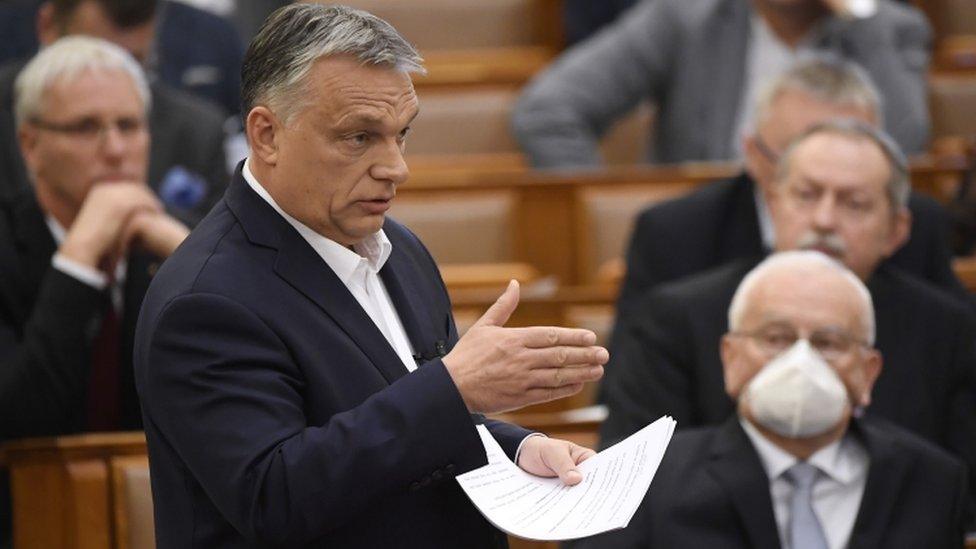
Hungary's national assembly voted to give Viktor Orban extraordinary powers in March
Hungarian lawmakers have voted in favour of repealing extraordinary powers granted to Prime Minister Viktor Orban to fight the coronavirus.
Members of parliament unanimously requested the government lift the state of emergency and Mr Orban's powers to rule by decree.
The government is expected to revoke the measures by the end of the week.
But opposition groups fear Mr Orban's administration has greatly expanded its powers amid the outbreak.
NGOs critical of Hungary's leader issued a joint statement saying the vote to remove powers was an "optical illusion" and that the authorities retained greater powers than before the crisis.
Democracy watchdog the Karoly Eotvos Institute believes the legislation does not end the measures but instead "creates a legal basis for the use of newer extraordinary and unlimited government powers", according to the New York Times, external.
Mr Orban, however, says these powers enabled him to tackle the outbreak quickly and effectively.
Lockdown restrictions have been largely lifted in the country of 10 million people. According to Johns Hopkins University, Hungary has confirmed 4,077 cases and 565 deaths.
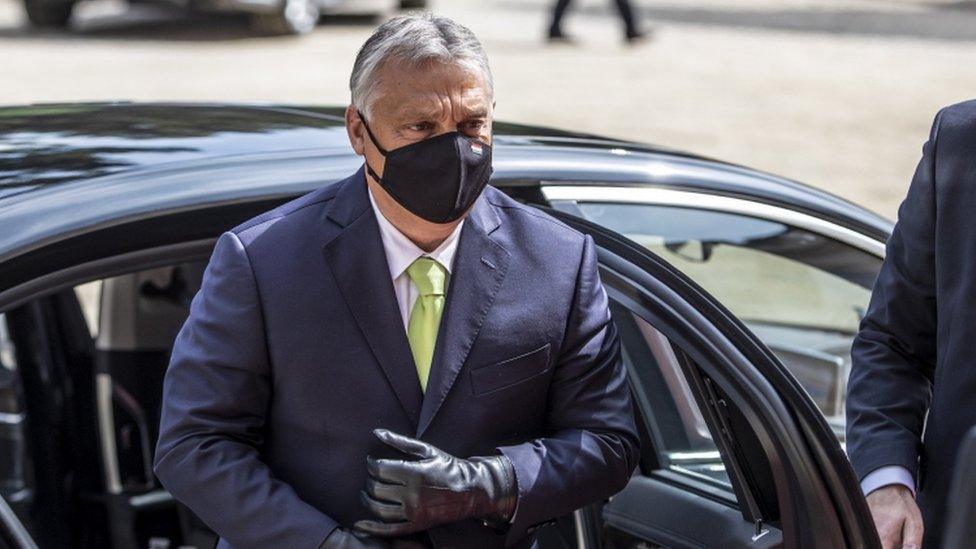
Viktor Orban said the powers had helped him to tackle the outbreak quickly
On Tuesday, lawmakers voted by 190 in favour and none against to end the state of emergency and Mr Orban's extraordinary powers.
The original coronavirus protection act approved on 30 March did not set a deadline for the measures, and opponents feared it was an attempt by the prime minister to extend his control over the country.
But while MPs have now asked to end the measures, they also approved a bill allowing the government to impose another state of emergency in the event of another medical emergency.
Mr Orban, a nationalist and conservative, and his ruling Fidesz party, which holds an outright majority in parliament, are accused of wielding power in increasingly authoritarian ways.
EU leaders have repeatedly raised concerns about Mr Orban's government. A group of 13 member states expressed "deep concern" over the extraordinary powers in March, saying they could threaten "democracy and fundamental rights".

At first sight the government appears to have fulfilled its promise to end the state of danger and restore the almost unlimited powers, which parliament granted it on 30 March.
On closer scrutiny, the scrapping of the law still leaves the government more powerful than before the coronavirus crisis.
Thanks to the second bill passed at the same time, the government can in future declare a "state of health emergency", nudge parliament aside and rule by decree for as long as it wishes. "Those who have been sounding the alarm that the government can and will abuse the powers it gained in relation to managing the Covid-19 crisis were in fact right," says the Hungarian Helsinki Committee, an NGO.
The underlying problem plaguing Hungarian democracy is one of trust. Since 2010, the Fidesz government has used its democratic mandate to concentrate power in its own hands, and eroded all checks and balances.
Parliament, the constitutional Court, the president, the chief medical officer, and the dominant media majority, are under Viktor Orban's control. Independent media and the courts, although both reduced, remain the last obstacles to absolute power.

- Published21 April 2020
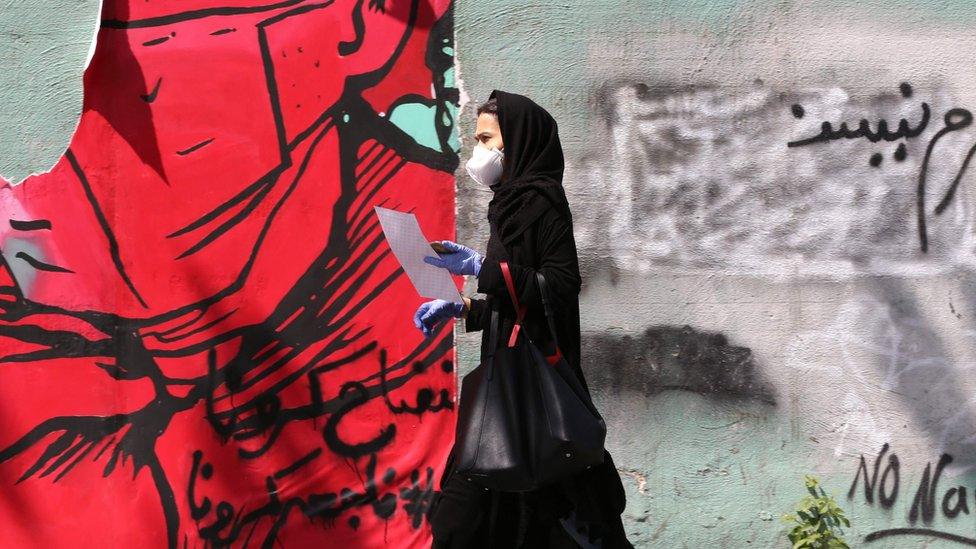
- Published2 April 2020
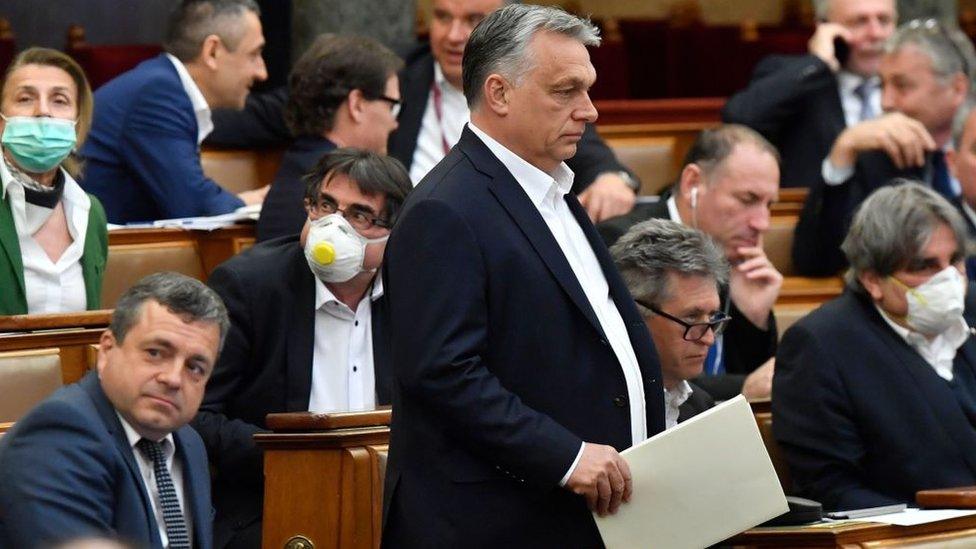
- Published7 September 2019
